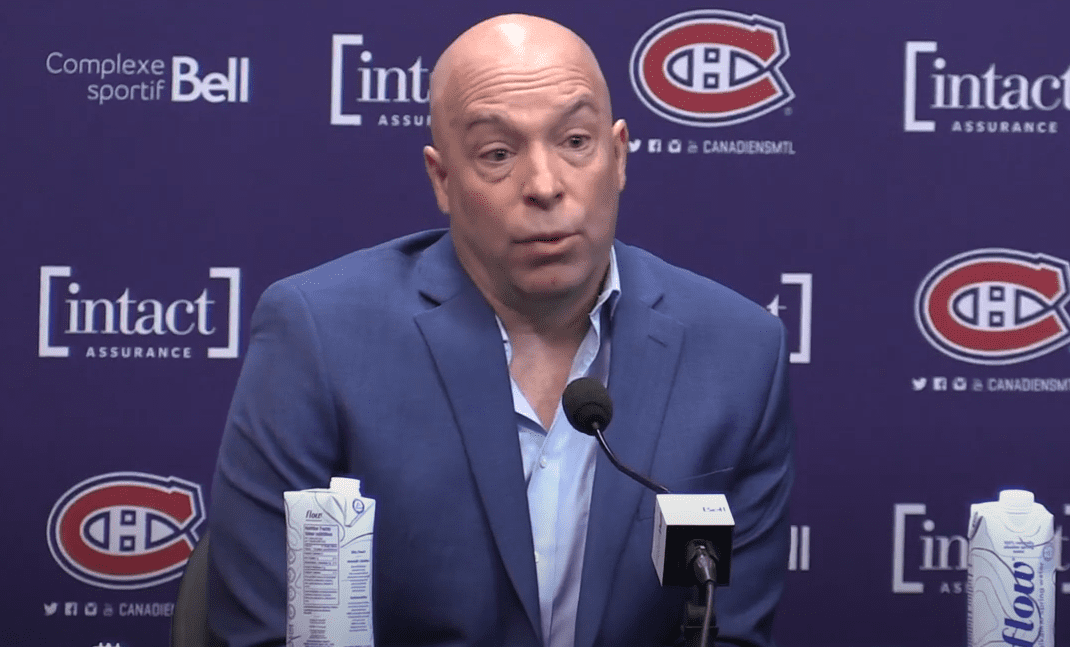Montreal Canadiens
Montreal Canadiens Should Approach The Buyout Period With Caution

The Montreal Canadiens are on a mission to free up some much-needed cap space, but they should think twice about using a buyout to gain more flexibility this summer.
The first NHL buyout period begins 48 hours after the end of the Stanley Cup Final, which will be, at the latest, June 30 and remains open until 5 pm EST on July 12. During this time, NHL clubs are permitted to buy out the contracts of players they deem to be too expensive for their current output. By buying out a player’s contract, teams are able to secure a reduced salary cap hit in the short term, but it comes with a catch. The buyout penalty will last twice as long as the amount of time left on a contract, which means that, if a team buys out a contract that has one year remaining, the team would be penalized for two years.
The amount of a buyout penalty functions in relation to the age of the player being bought out:
If the player is 25 years old or younger as of the moment he is bought out, the penalty is 1/3 the total salary remaining on the contract.
If the player is 26 years old or older as of the moment he is bought out, the penalty is 2/3 the total salary remaining on the contract.
Although it may help the Montreal Canadiens in the short term to rid themselves of certain contracts by way of a buyout, doing the exercise shows that it would not be a very advantageous venture for the club’s long-term goals.
Doesn’t Make Sense for Montreal Canadiens
Let’s say the Montreal Canadiens decided they wanted to hypothetically look into buying out the contract of Paul Byron, who has one year left on his deal valued at $3.4M at a $2.8M. The Canadiens would be on the hook for 2/3 of his salary (as Byron is 33 years old), over the next two years. The equation would break down as follows:
| Season | Salary | Cap Hit | Buyout Cost | Savings | Cap Hit |
|---|---|---|---|---|---|
| 2022-2023 | $2.8M | $3.4M | $0.933M | $1.866M | $1.533M |
| 2023-2024 | 0 | 0 | $0.933M | -$0.933M | $0.933M |
Buying out Byron would save the Canadiens $1.866M in cap space this season, but would then strap them with $0.933M in buyout penalties for the following season, which would defeat the purpose for Kent Hughes, who is looking for long-term cap flexibility. The same exercise could apply to buying out a player on a longer-term contract like Joel Armia, who has three years left on his $3.4M deal. The longer the deal, the longer the penalty, and, even though some may argue that Armia is slightly overpaid for what he brings, it would be more beneficial for the Canadiens to trade him for a smaller cap dump, like last week’s acquisition of Evgenii Dadonov for Shea Weber‘s contract, then to by out the rugged winger.
See for yourself:
| Season | Salary | Cap Hit | Buyout Cost | Savings | Cap Hit |
|---|---|---|---|---|---|
| 2022-2023 | $3M | $3.4M | $1.288M | $1.711M | $1.68M |
| 2023-2024 | $4.8M | $3.4M | $1.288M | $3.511M | -$0.111M |
| 2024-2025 | $3.8M | $3.4M | $1.288M | $2.511M | 0.888M |
| 2025-2026 | $0 | 0$ | $1.288M | -$1.288M | $1.288M |
| 2026-2027 | 0$ | 0$ | $1.288M | -$1.288M | $1.288M |
| 2027-2028 | 0$ | 0$ | $1.288M | -$1.288M | $1.288M |
It doesn’t seem like a buyout would be a viable option for the Montreal Canadiens moving forward, as it could provide some short-term relief, but it would ultimately strap them for the future. As general manager Kent Hughes said during his last press conference, he’s looking for long-term financial flexibility, and the very structure of a buyout is the anthesis of such a strategy.









